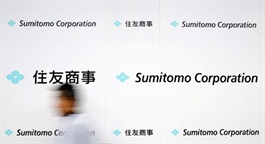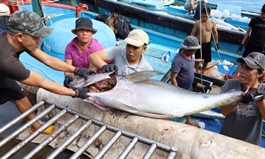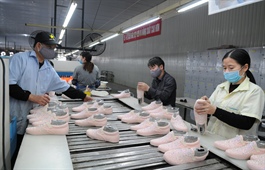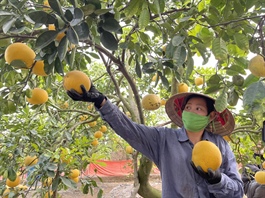CPTPP helps increase Vietnamese produce exports to Japan
CPTPP helps increase Vietnamese produce exports to Japan
The Comprehensive and Progressive Agreement for Trans-Pacific Partnership (CPTPP) creates major advantages for Vietnamese exports to Japan, especially of agricultural, forest and aquatic products. To take advantage of the trade deal, the Ministry of Industry and Trade (MoIT) and the Vietnam Trade Office in Japan are increasing efforts to connect domestic businesses with Japanese importers and distributors.
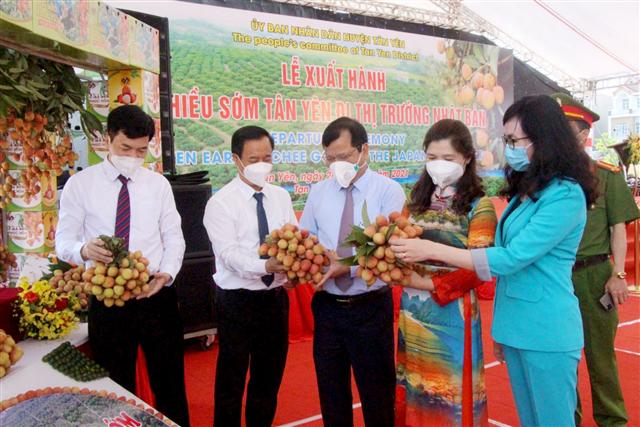
Vietnamese lychees attract Japanese consumers
|
Tax preferences
Japan is a major export market for Vietnamese agricultural, forest and aquatic products. In the first seven months of this year, Vietnam exported more than US$1.9 billion worth of these products to Japan.
Vietnam and Japan have signed a bilateral economic partnership agreement (VJEPA) and are members of two multilateral trade deals: the ASEAN-Japan Comprehensive Economic Partnership (AJCEP), and the CPTPP.
Under the CPTPP, Japan pledged to eliminate tariffs for about one third of Vietnamese meat and meat product exports as soon as the trade deal took effect, and reduce/eliminate tariffs for the remaining two thirds according to a 2-16 year roadmap. For example, tax rates applied to a whole/half pig, either fresh or frozen, will be reduced to zero percent within 10 years. Tariffs for cattle viscera, either fresh or frozen, will also be eliminated according to a 13-year roadmap. Market opening commitments under the CPTPP are at a higher level compared to those provided by the VJEPA.
Japan also pledged to elimilate tariffs for about 65 percent of Vietnamese seafood exports as soon as the CPTPP took effect and reduce/eliminate tariffs for the rest according to a 6-16 year roadmap.
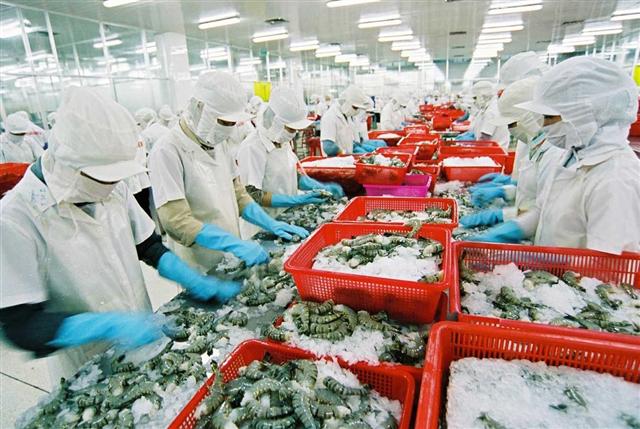
Japan pledged to eliminate tariffs for 65 percent of Vietnam’s seafood exports as soon as the CPTPP took effect
|
Intensifying promotion in Japan
Despite these preferences, Vietnam’s farm produce, aquatic product and food exports to Japan remain modest, with value accounting for a mere 8.2 percent of total value of exports to this market in the first four months of 2021, according to the General Department of Vietnam Customs.
Japanese customs data show that Japan imports many kinds of products in which Vietnam has advantage, but mostly from other countries. For example, Japan imports agricultural and aquatic products mostly from the US (23.3 percent), China (11.8 percent), and ASEAN (13.4 percent) members, with imports from Vietnam accounting for 18.3 percent of total imports from ASEAN and barely 2.4 percent of total imports from all sources.
Japan has high import demand for fish and fish products, shrimp, eel, meat and meat products, soybean, cereal products, fruit and vegetables. Agricultural, aquatic products and food account for approximately 10 percent of total import value.
In an effort to connect Vietnamese businesses with Japanese importers and distributors, the Vietnam Trade Office in Japan had assisted domestic companies in sending sample products and catalogues for display at the 46th International Food and Beverage Exhibition (FOODEX Japan 2021), as well as at the showroom of the office.
Such efforts have contributed to increasing the presence of quality Vietnamese products on the shelves of major supermarket chains in Japan, such as AEON and Donkihote.
However, the Vietnam Trade Office in Japan has warned domestic companies that Japanese consumers are highly sensitive to continous changes in product prices and therefore importers attach great importance to stable prices and supply volume.
| The Vietnam Trade Office in Japan said domestic companies should focus on improving product quality and diversity to meet specific tastes of different types of customers. |







